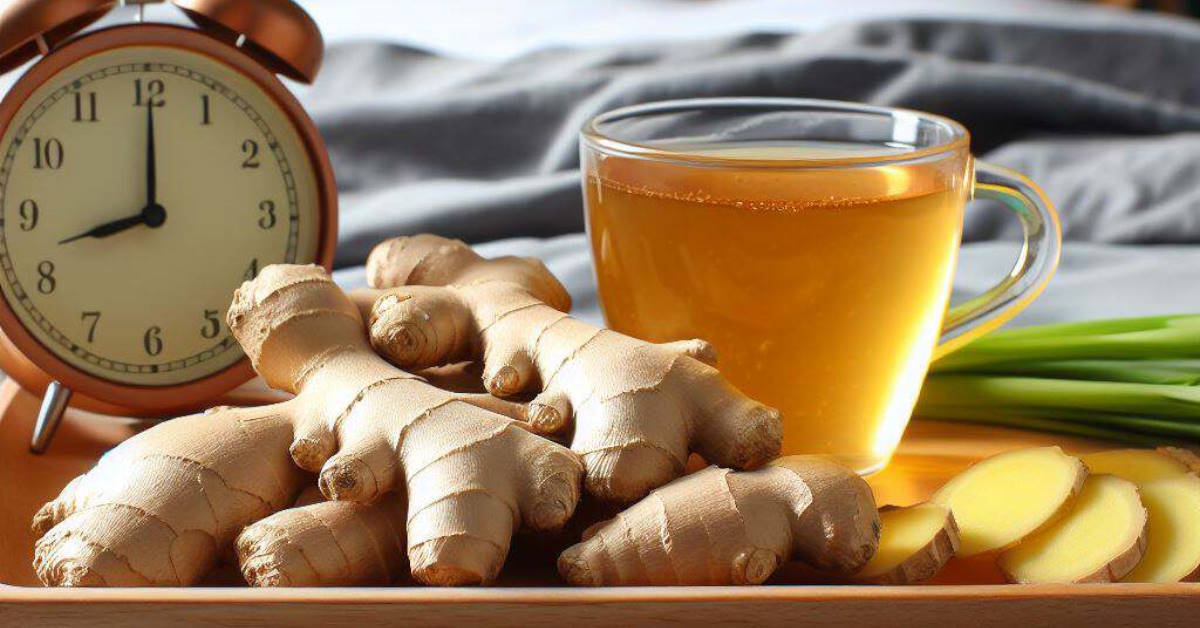Ginger Tea for Acid Reflux

Acid reflux, also known as gastroesophageal reflux disease (GERD), is a common digestive disorder characterized by the backflow of stomach acid into the esophagus. This condition can lead to uncomfortable symptoms such as heartburn, regurgitation, chest pain, and difficulty swallowing. While various medical treatments are available, many individuals seek natural remedies to manage their acid reflux symptoms. One such remedy gaining popularity is ginger tea, known for its soothing properties and potential to alleviate digestive discomfort.
Ginger: A Natural Remedy for Acid Reflux
Ginger, a root spice native to Asia, has been used for centuries for its medicinal properties. Study shows that its active compounds, including gingerols and shogaols, exhibit anti-inflammatory and antioxidant effects, making ginger a powerful ally in promoting digestive wellness. Ginger is believed to help relax the gastrointestinal tract muscles, reducing the likelihood of acid reflux episodes and calming irritated tissues.

How Ginger Tea Helps Alleviate Acid Reflux Symptoms
1. Soothing the Digestive System: Salabat is a natural digestive aid that promotes smooth digestion and relieves bloating and nausea. Its anti-inflammatory properties can help alleviate the inflamed esophagus and reduce the discomfort associated with acid reflux.
2. Reducing Acid Production: Ginger has been shown to inhibit the production of stomach acid, which can help prevent excessive acid reflux. By regulating gastric acid secretion, ginger tea can minimize the chances of acid backing up into the esophagus and causing heartburn.
3. Enhancing Digestive Muscle Function: The compounds found in ginger tea may help improve the functioning of the lower esophageal sphincter (LES), a ring of muscle that separates the stomach from the esophagus. Strengthening the LES can prevent stomach acid from splashing back into the esophagus and alleviate acid reflux symptoms.
Preparing and Brewing Ginger Tea
To harness the benefits of ginger salabat powder for acid reflux relief, follow these simple steps:
1. Gather the Ingredients: You'll need fresh ginger root, filtered water, and a sweetener (optional).
2. Prepare the Ginger: Peel and slice a 1-inch piece of fresh ginger root. Crushing or grating ginger can enhance the release of its beneficial compounds.
3. Boil the Water: Bring 2 cups of filtered water to a boil in a saucepan.
4. Add the Ginger: Add the sliced ginger to the boiling water and let it simmer for 10 minutes.
5. Strain and Serve: Strain the ginger tea into a cup or teapot after simmering. You can add honey or lemon juice for taste, although it's best to avoid citrus if you have acid reflux.
Tips for Incorporating Ginger Tea into Your Routine
1. Start Slowly: Begin with a small amount of ginger tea to see how your body responds. Gradually increase the dosage as tolerated.
2. Timing Matters: Drink ginger tea at least 30 minutes before meals to allow the ginger to take effect and support proper digestion.
3. Sip Throughout the Day: Rather than consuming large quantities of ginger tea at once, it's beneficial to sip on small amounts throughout the day. This can help maintain a steady supply of ginger's soothing properties in your system.
4. Stay Hydrated: Remember to drink plenty of water alongside ginger tea to stay hydrated and support overall digestion.
5. Choose Quality Ginger: Opt for fresh ginger root rather than powdered ginger for maximum potency and flavor. Look for ginger that is firm, smooth, and free from blemishes.
Other Lifestyle Changes to Support Acid Reflux Relief
While ginger salabat with honey can relieve acid reflux symptoms, adopting a holistic approach to managing this condition effectively is essential. Consider incorporating the following lifestyle changes alongside ginger tea consumption:
1. Maintain a Healthy Weight: Excess weight can contribute to acid reflux by putting pressure on the stomach and causing the contents to flow back into the esophagus. Engage in regular physical activity and adopt a balanced diet to achieve and maintain a healthy weight.
2. Practice Portion Control: Overeating can strain the digestive system and increase the risk of acid reflux. Opt for smaller, more frequent meals, and avoid eating close to bedtime.
3. Avoid Trigger Foods: Certain foods and beverages can exacerbate acid reflux symptoms. Common triggers include spicy and fatty foods, citrus fruits, tomatoes, chocolate, caffeine, and carbonated drinks. Identify your triggers and limit or avoid them to minimize symptoms.
4. Elevate the Head of Your Bed: Raising the head of your bed by 6 to 8 inches can help prevent stomach acid from flowing back into the esophagus during sleep. Use bed risers or place a wedge-shaped pillow under the mattress to achieve the desired elevation.

When to Consult a Medical Professional
While ginger tea can provide relief for mild to moderate acid reflux symptoms, it is crucial to consult a medical professional if:
1. Your symptoms persist or worsen despite trying natural remedies.
2. You experience severe or recurring chest pain, difficulty swallowing, or unintended weight loss.
3. You have been diagnosed with GERD and want to explore additional treatment options.
4. A healthcare provider can assess your condition, recommend appropriate treatments, and provide tailored guidance.
Harnessing the Healing Benefits of Ginger Tea for Acid Reflux Relief
Incorporating ginger tea into your routine can be a gentle and natural way to manage acid reflux symptoms. The anti-inflammatory properties of ginger can help calm the digestive system, reduce acid production, and support healthy muscle function. Remember to prepare ginger tea using fresh ginger root and enjoy it in moderation, sipping throughout the day for maximum effectiveness.
Alongside ginger tea, make lifestyle changes such as maintaining a healthy weight, practicing portion control, and avoiding trigger foods to support long-term acid reflux relief. If symptoms persist or worsen, it is essential to consult a healthcare professional for further evaluation and guidance. Embrace the healing power of ginger tea and reclaim control over your digestive health.

